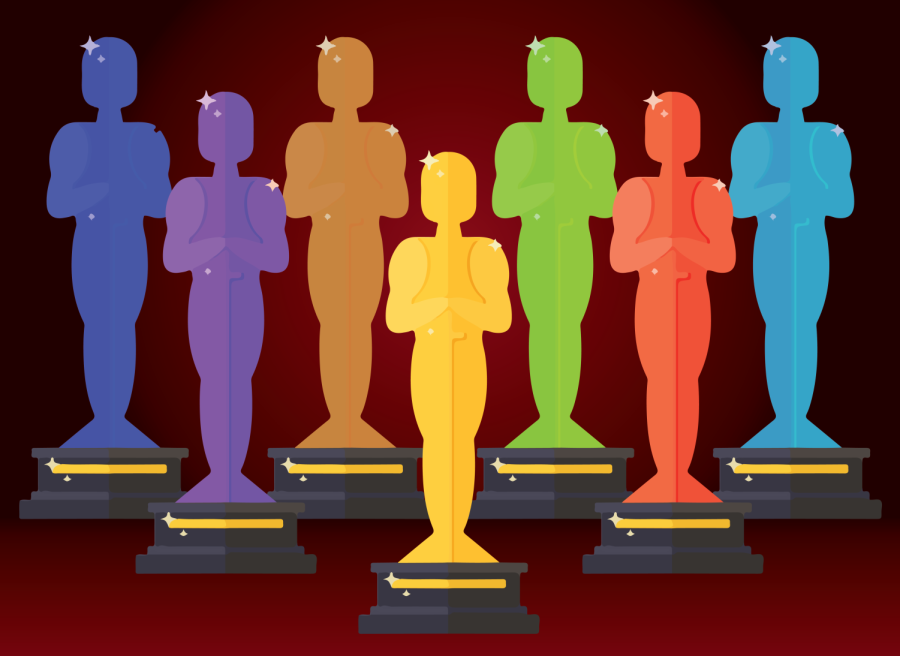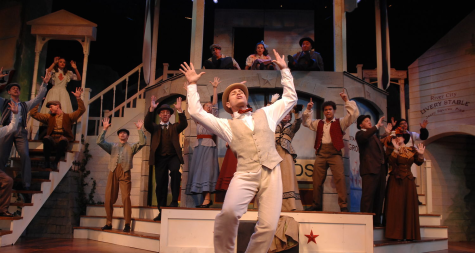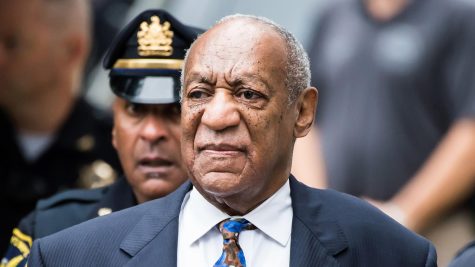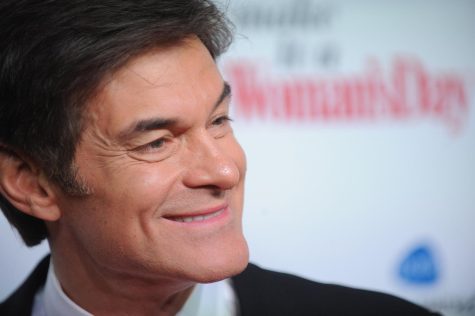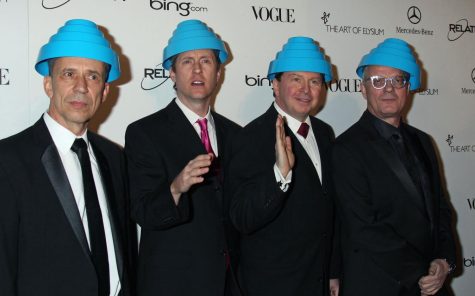2019 Oscar Nominees more LGBTQ-inclusive than ever
February 17, 2019
The 2019 Academy Awards is saturated with LGBTQ plotlines, characters and actors in a history-making batch of nominations, as more than half of the Best Picture nominees include an LGBTQ presence.
GLAAD, the largest LGBTQ media advocacy nongovernmental organization, released a Studio Responsibility Index, which quantifies the amount of LGBTQ-inclusive films and out nominees, and announced that 2019 was a record year for best picture nominees. The Studio Responsibility Index tracks the quality, quantity and diversity of films released by the seven largest movie studios each year.
Among the best picture nominees are “A Star is Born,” “Green Book,” “The Favourite,” “Bohemian Rhapsody” and “Vice,” each of which has some tie to the LGBTQ community. Lady Gaga, the lead in “A Star is Born,” identifies as bisexual. Mahershala Ali portrays a queer man in “Green Book.” “The Favourite” tells the story of a love triangle involving three women. “Bohemian Rhapsody” explores the life and band of LGBTQ icon Freddie Mercury. And a central conflict in “Vice” is the sexuality of Dick Cheney’s daughter.
Behind-the-scenes work done by LGBTQ members was also celebrated this year, with nominees ranging from Marc Shaiman for best original score on “Mary Poppins Returns” to Scott Rudin for best animated feature with “Isle of Dogs,” both of whom are openly gay.
The nominations for the 2018 year come after a reported 5.6 percent decrease in LGBTQ characters between 2016-17, with only 28 LGBTQ characters appearing in mainstream releases during 2017, according to GLAAD’s index. The studios also released no films with transgender characters during 2017.
The perception of the LGBTQ community is heavily influenced by what we see on screen, said Ken Ditlevson, the director of the Kent State LGBTQ Student Center.
“It impacts our lives hugely,” Ditlevson said. “Media makes identities valid and real and embraced.”
Ditlevson saw “A Star is Born,” and thinks stars like Lady Gaga can have a particularly profound effect on LGBTQ youth.
“When Gaga comes out with songs like ‘Born This Way,’ it made such a positive impact and those things truly can save lives and save people when they’re in really desperate moments,” he said. “It has a really validating outcome.”
Kat Rinella, a senior psychology major and member of the LGBTQ community, sees the nominations as a step toward dismantling the stigmas that still surround the community.
“I think it’s great that our community is being represented more in movies and media in general,” Rinella said, “because we’re not trying to have anything special, we just want to be like everybody else.”
Rinella thinks the more representation in movies the community receives, the more normalized it will become.
“The gays aren’t in the closet anymore; we’re here, we’re queer and we’re proud,” Rinella said.
Although these nominations resonate with Rinella, she and other Kent State LGBTQ members still feel Hollywood’s representation is flawed, especially when it comes to the actors in the roles. Hollywood has a habit of giving roles and awards to straight actors playing roles of LGBTQ members without acknowledging the performances of gay actors themselves.
According to Advocate, at least 59 straight actors have been nominated for playing LGBTQ roles, such as Richard Jenkins for “Shape of Water,” Whoopi Goldberg in “The Color Purple” and Eddie Redmayne in “The Danish Girl.” Only a handful of LGBTQ actors and actresses have been recognized before this upcoming Academy Awards, with the most recent being Lucas Hedges for “Manchester by the Sea” in 2016 and Angelina Jolie for “Changeling” in 2008.
“I think that (LGBTQ) roles should be offered first to members of the LGBTQ community,” Rinella said.
The lack of LGBTQ actors isn’t the only issue some are taking with this year’s nominations. Public figures Mark Harris and Laurence Barber have voiced complaints that the standards for films to be considered LGBTQ-inclusive are relatively low. None of the films up for Academy Awards this year are considered “issue-films,” where the realities of non-heterosexual, non-cisgendered existence is at the forefront of the plot.
But Ditlevson sees non-issue films as equally representative of the community. “We are regular characters, we don’t always have to be dealing with some big issue,” he said. However, he believes some old stereotypes are still deeply ingrained in media, like gay men being written as a jester or as predators. In some cases, stereotypes such as promiscuity and depression are still often present with LGBTQ roles.
“The majority of our community, there’s a lot of really positive people that are out there, but that’s not typically what we’re shown in the media,” Ditlevson said.
Bella Bowman, a senior fashion merchandising major and an intern at the LGBTQ Student Center, thinks there is room to improve diverse roles in film, but is content with Freddie Mercury’s portrayal in the biopic “Bohemian Rhapsody.”
“In films when we are represented, I feel like it’s always revolving around sex and sex scenes, and I think Bohemian Rhapsody did a really good job of (avoiding) that,” Bowman said.
Despite her qualms with this year’s Oscars, Rinella also thinks “Bohemian Rhapsody” struck a particularly positive note.
“He was bisexual, so I think it was cool the way they portrayed that and setting the record straight— or setting the record gay,” Rinella said.
The 91st Academy Awards will air on Sunday.
Madison Patterson is a features writer. Contact her at [email protected].


